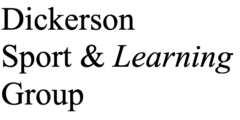As I journey through the land, singing as I go,
Pointing souls to Calvary—to the crimson flow,
Many arrows pierce my soul from without, within;
But my Lord leads me on, through Him I must win.
When in service for my Lord dark may be the night,
But I’ll cling more close to Him, He will give me light;
Satan’s snares may vex my soul, turn my thoughts aside;
But my Lord goes ahead, leads whate’er betide.
When in valleys low I look toward the mountain height,
And behold my Savior there, leading in the fight,
With a tender hand outstretched toward the valley low,
Guiding me, I can see, as I onward go.
When before me billows rise from the mighty deep,
Then my Lord directs my bark; He doth safely keep,
And He leads me gently on through this world below;
He’s a real Friend to me, oh, I love Him so.
Oh, I want to see Him, look upon His face,
There to sing forever of His saving grace;
On the streets of glory let me lift my voice,
Cares all past, home at last, ever to rejoice!
